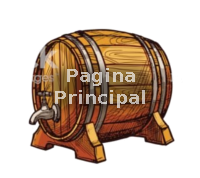 |
| Ballads de Robert Louis Stevenson, 1890 |
Heather Ale (Robert Louis Stevenson » Ballads)
A GALLOWAY LEGEND
From the bonny bells of heatherThey brewed a drink long-syne,Was sweeter far than honey,Was stronger far than wine.They brewed it and they drank it,And lay in a blessed swoundFor days and days togetherIn their dwellings underground.
There rose a king in Scotland,A fell man to his foes,He smote the Picts in battle,He hunted them like roes.Over miles of the red mountainHe hunted as they fled,And strewed the dwarfish bodiesOf the dying and the dead.
Summer came in the country,
Red was the heather bell;But the manner of the brewingWas none alive to tell.In graves that were like children'sOn many a mountain head,The Brewsters of the HeatherLay numbered with the dead.
The king in the red moorlandRode on a summer's day;And the bees hummed, and the curlewsCried beside the way.The king rode, and was angry,Black was his brow and pale,To rule in a land of heatherAnd lack the Heather Ale.
It fortuned that his vassals,Riding free on the heath,Came on a stone that was fallenAnd vermin hid beneath.Rudely plucked from their hiding,Never a word they spoke:A son and his aged father -Last of the dwarfish folk.
The king sat high on his charger,He looked on the little men;And the dwarfish and swarthy coupleLooked at the king again.Down by the shore he had them;And there on the giddy brink -"I will give you life, ye vermin,For the secret of the drink."
There stood the son and fatherAnd they looked high and low;The heather was red around them,The sea rumbled below.And up and spoke the father,Shrill was his voice to hear:"I have a word in private,A word for the royal ear.
"Life is dear to the aged,And honour a little thing;I would gladly sell the secret,"Quoth the Pict to the King.His voice was small as a sparrow's,And shrill and wonderful clear:"I would gladly sell my secret,Only my son I fear.
"For life is a little matter,And death is nought to the young;And I dare not sell my honourUnder the eye of my son.Take HIM, O king, and bind him,And cast him far in the deep;And it's I will tell the secretThat I have sworn to keep."
They took the son and bound him,Neck and heels in a thong,And a lad took him and swung him,And flung him far and strong,And the sea swallowed his body,Like that of a child of ten; -And there on the cliff stood the father,Last of the dwarfish men.
"True was the word I told you:Only my son I feared;For I doubt the sapling courageThat goes without the beard.But now in vain is the torture,Fire shall never avail:Here dies in my bosomThe secret of Heather Ale."
NOTE TO HEATHER ALE
Among the curiosities of human nature, this legend claims a high place. It is needless to remind the reader that the Picts were never exterminated, and form to this day a large proportion of the folk of Scotland: occupying the eastern and the central parts, from the Firth of Forth, or perhaps the Lammermoors, upon the south, to the Ord of Caithness on the north. That the blundering guess of a dull chronicler should have inspired men with imaginary loathing for their own ancestors is already strange: that it should have begotten this wild legend seems incredible. Is it possible the chronicler'serror was merely nominal? that what he told, and what the people proved themselves so ready to receive, about the Picts, was true or partly true of some anterior and perhaps Lappish savages, small of stature, black of hue, dwelling underground--possibly also the distillers of some forgotten spirit?See Mr. Campbell's Tales of the West Highlands.
 |
| Robert Louis Stevenson |
UNA LEYENDA DE GALLOWAY
De las campanillas del brezo
Lograron una bebida excelente
Mucho más dulce que la miel
Y más fuerte que el vino.
La elaboraron y bebieron,
Y vivieron en paz años y años
En sus moradas bajo la tierra.
Hubo un rey en Escocia
Cruel con sus enemigos
Batió a los pictos en batalla
Y los cazó como corzos
Persiguiéndolos millas y millas
Por la montaña roja.
Los cazó mientras huían,
Cubriendo sus cuerpos enanos,
Cadáveres y heridos.
Llegó el verano a esas tierras
La campana del brezo estaba roja
Pero no quedaba nadie con vida
Para recordar la receta.
En tumbas, como de niños,
Los cerveceros del brezo
Yacían sin vida.
El rey del páramo rojo
Cabalgaba un día de verano
Las abejas zumbaban, y los zarapitos
Chillaban en el camino.
El rey cabalgaba, iracundo,
Sombrío su semblante y pálido,
Por estar en tierra de brezos
Y no poder gustar su cerveza.
Sucedió que sus vasallos
Cabalgando por los alrededores
Encontraron una piedra caída
Que escondía unas sabandijas.
Arrancaron de su escondrijo,
Sin que dijeran una palabra,
A un hijo y su padre anciano,
Los últimos del pueblo enano.
El rey desde su montura
Contempló a los pequeños hombres,
Y la pareja de enanos
Miró a su vez al rey, quien les dijo:
"Os perdonaré la vida, bellacos,
por el secreto de la bebida".
El padre y el hijo contemplaron
Cielo y tierra, el rojo brezo alrededor,
A lo lejos el bramido del mar.
Se levantó el padre
Y dijo con voz chillona:
"quiero unas palabras en privado,
unas palabras con el rey".
"La vida es cara a los viejos,
poco significa el honor,
venderé con placer el secreto",
así habló el picto al rey.
Su voz era como la de un gorrión
Chillona pero muy clara:
"Venderé el secreto,
pero temo por mi hijo
A él la vida no le importa
La muerte no asusta a los jóvenes
Y yo no me atrevo a vender mi honor
Delante de mi hijo.
Llévatelo, oh rey, y átalo
Y lánzalo a las profundidades
Y así podré desvelar el secreto
Que he prometido guardar".
Agarraron al hijo y le ataron
Cuello y talones a una correa
Y un hombre lo lanzó como una piedra,
Lejos, con fuerza,
Y el mar se tragó su cuerpo,
Como el de un niño de diez años.
Y en el acantilado quedó el padre,
El último de su pueblo.
"Es verdad lo que os dije,
que sólo temía a mi hijo
porque dudo que los imberbes
tengan coraje.
Pero ahora la tortura es inútil,
El fuego será en vano.
En mi pecho morirá
El secreto de la heather ale".
NOTA
Entre las curiosidades de la naturaleza humana, esta leyenda reclama un lugar elevado. No hace falta recordar al lector que los pictos nunca fueron exterminados, y hasta el día de hoy forman una gran parte de la gente de Escocia: ocupando las partes oriental y central, desde Firth of Forth, o quizás los Lammermoors, hacia el sur. , a la Orden de Caithness en el norte. La extraña idea de un cronista aburrido debería haber inspirado a los hombres con un odio imaginario por sus propios antepasados ya es extraña: debería haber engendrado esta leyenda salvaje que parece increíble. ¿Es posible que el error del cronista fuera meramente nominal? que lo que contó, y lo que la gente demostró estar tan dispuesta a recibir, acerca de los pictos, fue cierto o parcialmente cierto de algunos salvajes anteriores y tal vez lagos, pequeños de estatura, negros de tono, que habitan bajo tierra, posiblemente también los destiladores de ¿Algún espíritu olvidado? Vea los cuentos de las tierras altas del oeste de Mr. Campbell.









